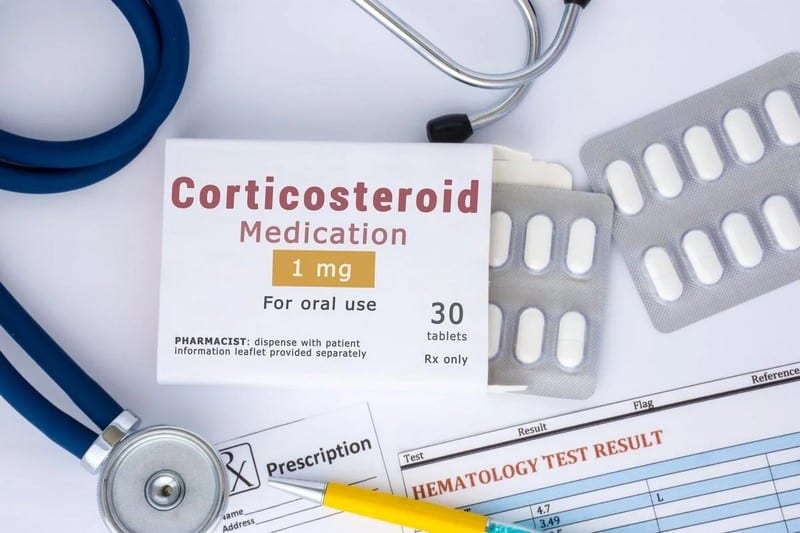Corticosteroids

Aside from open wounds and conditions associated with poor circulation, specific medications can also increase vulnerability to ringworm and other fungal infections. One example is corticosteroids like cortisone and prednisone. Generally used for reducing inflammation, these medications can treat various health conditions thanks to their ability to stifle or suppress overactive immune responses and help hormonal imbalances.
They’re also fast-acting drugs, making them particularly useful when treating the sudden onset of severe symptoms like allergic reactions. Some medical conditions corticosteroids may treat are asthma, allergies, eczema, hives, psoriasis, COPD, Crohn’s disease, ulcerative colitis, multiple sclerosis, lupus, Addison’s disease, and rheumatoid arthritis. But as useful as they are, they’re not without side effects, which include acne, weight gain, bruising, mood disorders, elevated blood pressure, diabetes, osteoporosis, cataracts, glaucoma, and liver damage.
Moreover, corticosteroids can harm those with obesity, depression, diabetes, ulcers, glaucoma, heart disease or failure, liver disease, epilepsy, hypertension, and ongoing infections. In addition, it can reduce the efficacy of specific medications while increasing the potency of others. Therefore, you must inform your doctor what medications you’re on before taking corticosteroids to minimize the risk of side effects.










